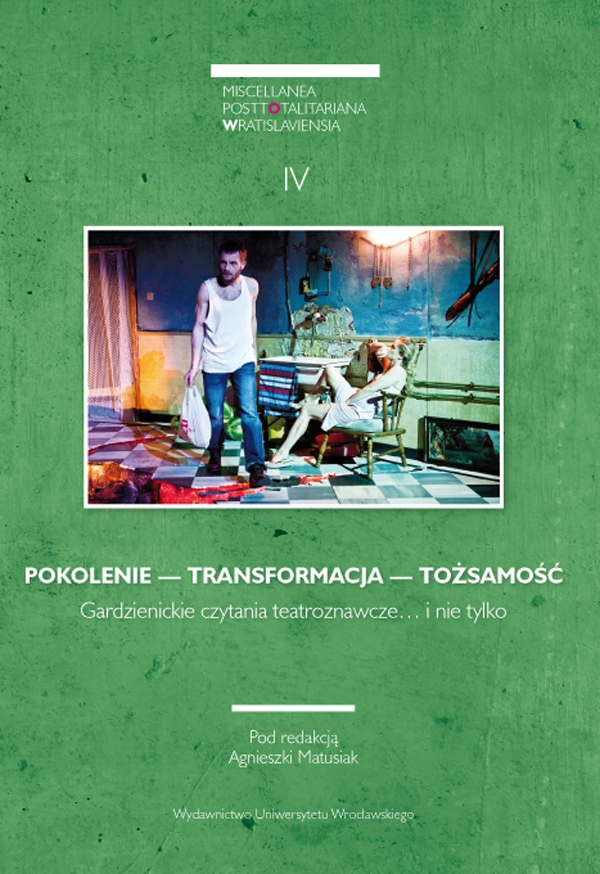

Artykuły

Between post-communism and postmodernism. The new Russian drama in search for its cultural identity.
Russian drama after 1991, suspended between memory and oblivion, attempts to process an overwhelming trauma of its own tragic history. Evgeny Grishkovets, Vladimir Sorokin, Ludmila Petrushevskaya, Alexey Shipenko, Oleg Bogayev, Vasily Sigarev, the Presnyakov brothers, Ivan Vyrypaev and others show experiences preceding and following Perestroika and demonstrate the scale of traumatic consequences of old structures disintegration as well as dangers connected with entering the area of freedom. This way Russian drama underwent all the development stages ranging from admiration for freedom to its negation, all the time without losing an interest in the internal man. Therefore criticism of the communist ideology as a kind of utopia and visions showing the risk of the rebirth of totalitarianism in Russia coexist along with the stream of consciousness depicting what is happening in the soul of a contemporary Russian. The process of self-identification of the human being that is decentralised, standardised and attached to stereotypes of mass awareness takes place within the framework of postmodernist mixture of stylistics and aesthetics, deconstruction of the reality and the language, play with culture codes, which is most fully expressed through the ongoing process of searching for cultural identity of the discussed works.
Между посткоммунизмом и постмодернизмом. Современная русская драматургия в поисках культурной идентичности.
Русская драматургия после 1991 года, зависшая между памятью и забвением, пытается проработать сковывающую травму своей трагической истории. Евгений Гришковец, Владимир Сорокин, Людмила Петрушевская, Алексей Шипенко, Олег Богаев, Василий Сигарев, братья Пресняковы, Иван Вырыпаев и др. показывают опыт «до» и «после» революции перестройки, демонстрируют масштаб травматических последствий распада предыдущих структур, а также опасности, сопряженные с вхождением в сферу свободы. Таким образом, драматургия в России прошла все стадии развития — от восторга до отрицания свободы, не теряя одновременно заинтересованности внутренним человеком. Отсюда критика утопического характера коммунистической идеологии или образы, указывающие на опасность возрождения тоталитаризма в России, которые сосуществуют с потоком сознания, воссоздающим то, что происходит в душе современного русского человека. Процесс самоидентификации децентрализованного, стандартного и привязанного к стереотипам массового сознания человека происходит в рамках постмодернистского смешения стилистик и эстетик, деконструкции действительности и языка, игры с культурными кодами, что наиболее полно показывает незаконченный процесс поиска культурной идентичности обсуждаемого творчества.